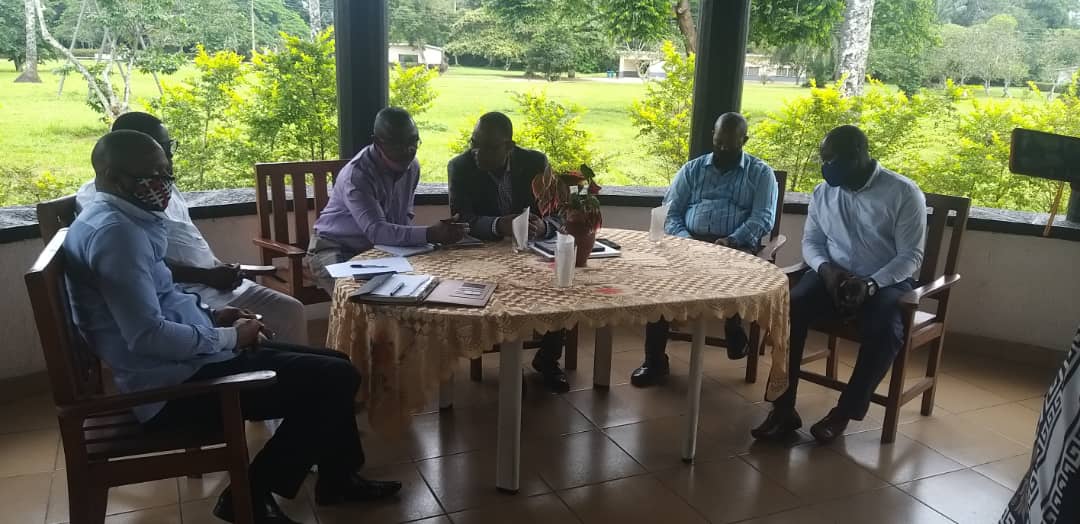Business
NESG Unveils 27th Economic Summit Theme …Calls For Urgent Measures On Nigeria’s Future

The Nigerian Economic Summit Group (NESG), has unveiled the theme for the 27th edition of its annual summit scheduled for later this year, according to a statement by Yinka Iyinolakan, Head, Corporate Communications of the NESG.
The statement issued on Wednesday, in Abuja, cited “Securing our future: the fierce urgency of now”, as the theme of the National Economic Summit (NES).
Iyinolakan stated that the summit was a collaboration between the public sector, represented by the Federal Ministry of Finance, Budget and National Planning and the organised private sector represented by the NESG.
While welcoming participants to the unveiling event, the chairman of the NESG, Mr Asue Ighodalo said the annual summits had been sustained by the public-private dialogue between the NESG and the Finance ministry of finance.
“The summit is the foremost platform through which the Federal and state governments engage with corporate leaders and discuss Nigeria’s national and sub-national economic realities.
“It helps to co-create reform strategies that are critical for the advancement and reform of the Nigerian economy,” he said.
Ighodalo stated that given the present state of Nigeria’s economy, increasing unemployment, pervasive insecurity and dwindling investments in critical sectors, the time was ripe to question the path for securing a long-term future for Nigeria.
He added that governments at all levels must intensify efforts at addressing the challenges of insecurity, kidnappings, theft and other social vices.
“A secure environment is a pre-condition for economic growth, job creation and poverty reduction.
“With the current state of the Nigerian economy, it has become critical for the country to adopt a different approach with a profound sense of urgency; in finding workable measures and taking concerted actions towards achieving economic growth and national security.
“This 27th NES will present a platform for stakeholders to highlight Nigeria’s core socio-economic vulnerabilities and associated risks,to come up with solutions.
“Such solutions should alleviate these vulnerabilities while exploring potential opportunities and priorities that will accelerate economic development,” the NESG chairman said.
He revealed that the private sector-driven NESG, was currently collaborating with the Federal Ministry of Finance, Budget and National Planning to develop the long-term National Economic Development Plan, the Nigeria Agenda 2050.
He said it was imperative that the 27th NES deepened the trust and collaboration between the public and private sector to enhance the growth of the Nigerian economy.
Meanwhile, the Minister of state, Budget and National Planning, Mr Clem Agba, in his remarks, assured that Nigeria’s inflation rate was showing a downward trajectory despite global economic challenges.
Agba stated that the Summit provided a platform for effective partnership and strengthened relationships.
He added that the conclusions and recommendations of the 26th NES, held in 2020, had been forwarded to the cabinet office and would soon be deliberated upon by the Federal Executive Council (FEC).
Business
Kenyan Runners Dominate Berlin Marathons
Kenya made it a clean sweep at the Berlin Marathon with Sabastian Sawe winning the men’s race and Rosemary Wanjiru triumphing in the women’s.
Sawe finished in two hours, two minutes and 16 seconds to make it three wins in his first three marathons.
The 30-year-old, who was victorious at this year’s London Marathon, set a sizzling pace as he left the field behind and ran much of the race surrounded only by his pacesetters.
Japan’s Akasaki Akira came second after a powerful latter half of the race, finishing almost four minutes behind Sawe, while Ethiopia’s Chimdessa Debele followed in third.
“I did my best and I am happy for this performance,” said Sawe.
“I am so happy for this year. I felt well but you cannot change the weather. Next year will be better.”
Sawe had Kelvin Kiptum’s 2023 world record of 2:00:35 in his sights when he reached halfway in 1:00:12, but faded towards the end.
In the women’s race, Wanjiru sped away from the lead pack after 25 kilometers before finishing in 2:21:05.
Ethiopia’s Dera Dida followed three seconds behind Wanjiru, with Azmera Gebru, also of Ethiopia, coming third in 2:21:29.
Wanjiru’s time was 12 minutes slower than compatriot Ruth Chepng’etich’s world record of 2:09:56, which she set in Chicago in 2024.
Business
NIS Ends Decentralised Passport Production After 62 Years
Business
FG To Roll Out Digital Public Infrastructure, Data Exchange, Next Year
-
Sports4 days ago
CAFCL : Rivers United Arrives DR Congo
-
Sports4 days ago
FIFA rankings: S’Eagles drop Position, remain sixth in Africa
-
Sports4 days ago
NPFL club name Iorfa new GM
-
Sports4 days ago
NNL abolishes playoffs for NPFL promotion
-
Sports4 days ago
NSF: Early preparations begin for 2026 National Sports Festival
-
Sports4 days ago
Kwara Hopeful To Host Confed Cup in Ilorin
-
Sports4 days ago
RSG Award Renovation Work At Yakubu Gowon Stadium
-

 Politics4 days ago
Politics4 days agoRivers Assembly Resumes Sitting After Six-Month Suspension

